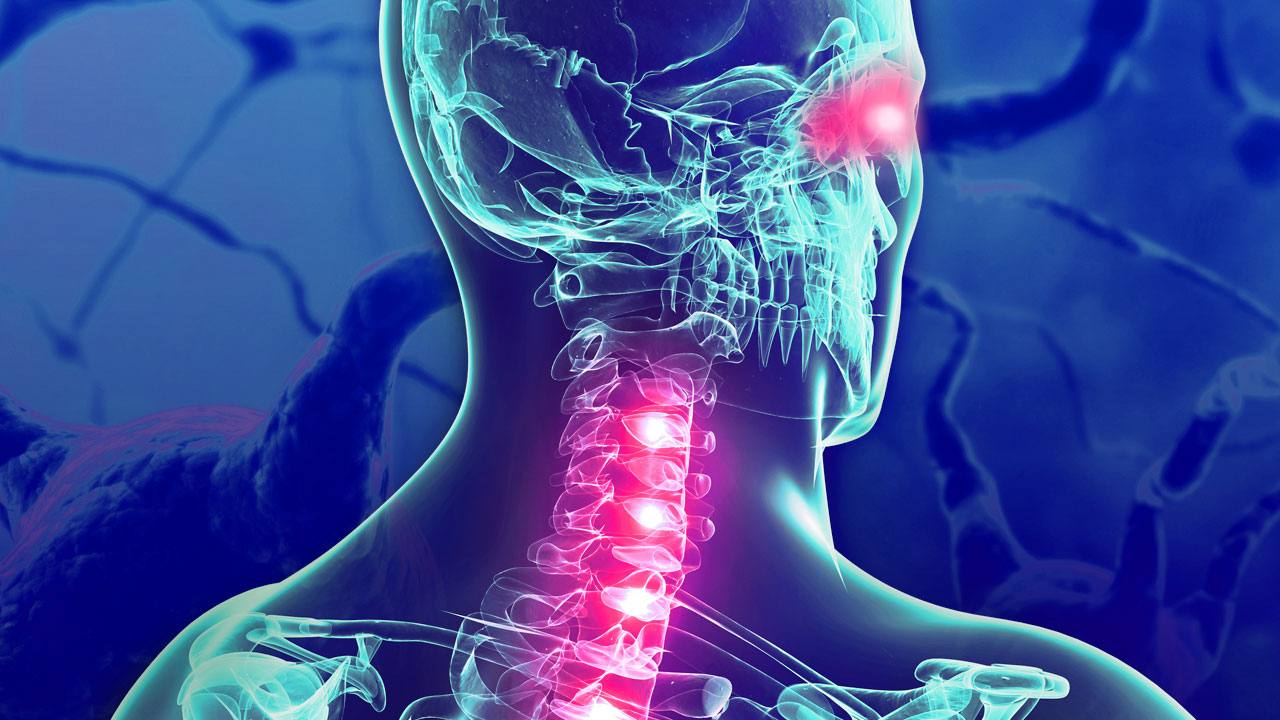-
Featured News
Mayo researchers correlate specific antibody with relapse of neurological disorder

ROCHESTER, Minn. — For patients who have been diagnosed with acute disseminated encephalomyelitis (ADEM), Mayo researchers have found a direct correlation between a specific antibody, myelin oligodendrocyte glycoprotein — also known as MOG, and an increased risk of recurring attacks in these individuals.
Mayo Clinic neurologists Sean Pittock, M.D., and Sebastian Lopez, M.D., have found that when patients test positive for the MOG antibody, they have an increased possibility of another ADEM episode. The study was published in JAMA Neurology.
About acute disseminated encephalomyelitis
“Acute disseminated encephalomyelitis — often called ADEM — is a rare neurological disorder where inflammation occurs, usually in the brain, spinal cord or sometimes the optic nerves,” says Dr. Pittock, director of the Mayo Clinic Neuroimmunology Laboratory and the Marilyn A. Park and Moon S. Park, M.D., director of the Center for Multiple Sclerosis and Autoimmune Neurology. “Oftentimes, ADEM occurs in patients after a viral or bacterial infection, and it tends to occur more often in children than in adults.”
ADEM attacks usually occur only once, and most patients recover when treated with immunotherapy. Dr. Pittock says that symptoms may include fever, headache, nausea and an altered mental status. In severe cases, individuals experience seizures or comas. “If we can help patients know whether or not they are more susceptible to relapses, this is very important,” says Dr. Pittock. “ADEM attacks can lead to further brain damage, loss of vision or even paralysis.”
In the Mayo Clinic study, the researchers evaluated for the presence of the MOG antibody and whether the persistence of the antibody was associated with an increased risk of relapses after ADEM.
“We found that 88 percent of these patients who continued to have detectable antibodies suffered at least one more episode of inflammation of their central nervous system,” says Dr. Lopez, lead author on the study.
About myelin oligodendrocyte glycoprotein and the test
Myelin oligodendrocyte glycoprotein is a newly recognized antibody found in patients who have inflammatory central nervous system (CNS) disorders such as optic neuritis (inflammation of the optic nerve), transverse myelitis (spinal cord inflammation), encephalitis (brain inflammation) or, in some cases, a combination of these. The Mayo study evaluated a large cohort of patients (children and adults) with an initial diagnosis of ADEM. The study also suggests new diagnostic criteria for patients with inflammatory CNS disorders and positive MOG antibodies.
“We found that patients, children and adults, who become ‘seronegative,’ which means the antibody is no longer present in their blood, are very unlikely to have another episode of CNS inflammation or a new ADEM attack,” adds Dr. Lopez.
The MOG antibody test is available to Mayo Clinic patients and health care providers worldwide through Mayo Medical Laboratories, the global reference laboratory of Mayo Clinic.
Distinguishing MS from other neurological disorders
“Multiple sclerosis, or MS, can also affect the optic nerve, spinal cord or brain, which can make it difficult to distinguish from other CNS disorders,” says Dr. Pittock. “Because of this, many patients who are considered ‘MOG-antibody positive’ can be misdiagnosed with MS if they are not tested for this biomarker, and that means that they could be receiving treatment that may not be effective.”
“Testing for the MOG antibody in patients who present with optic neuritis, transverse myelitis or brain inflammation is helpful because these patients represent a different subgroup of patients with CNS inflammatory disorders,” adds Dr. Lopez. “And while they share some features with MS, they have different outcomes, different responses to drugs and a risk of relapse. Establishing the correct diagnosis is crucial, and MOG antibody testing — along with the application of the diagnostic criteria — can help with both diagnosis and treatment.”
###
About the MOG-IgG test (test ID: MOGFS)
For inflammatory demyelinating diseases (IDDs), the MOG-IgG test is appropriate for diagnosing IDDs with similar characteristics to neuromyelitis optica spectrum disorders (NMOSDs), including optic neuritis (single or bilateral) and transverse myelitis. The test also can help diagnose neuromyelitis optica, acute disseminated encephalomyelitis (ADEM), and the prediction of a relapsing disease.
Most importantly, the test allows distinction of NMOSD, ADEM, optic neuritis, and transverse myelitis from multiple sclerosis early in the course of a disease.
The MOG-IgG test uses serum — not spinal fluid — and is a fluorescence-activated cell-sorting assay, the first of its kind in the U.S.
About Mayo Medical Laboratories and the Department of Laboratory Medicine and Pathology
The Mayo Clinic Department of Laboratory Medicine and Pathology and its reference laboratory Mayo Medical Laboratories provide advanced laboratory testing and pathology services to support 4,000 health care organizations around the world. Revenue from this testing supports medical education and research at Mayo Clinic, a nonprofit worldwide leader in medical care, research and education for people from all walks of life. Complemented by collaborations with diagnostic and biotechnology companies, the department maintains a robust diagnostic test-development program, launching more than 150 new tests each year.
About Mayo Clinic
Mayo Clinic is a nonprofit organization committed to clinical practice, education and research, providing expert, comprehensive care to everyone who needs healing. Learn more about Mayo Clinic. Visit the Mayo Clinic News Network.
Media contact:
- Gina Chiri-Osmond, Mayo Clinic Public Affairs, 507-284-5005, newsbureau@mayo.edu







